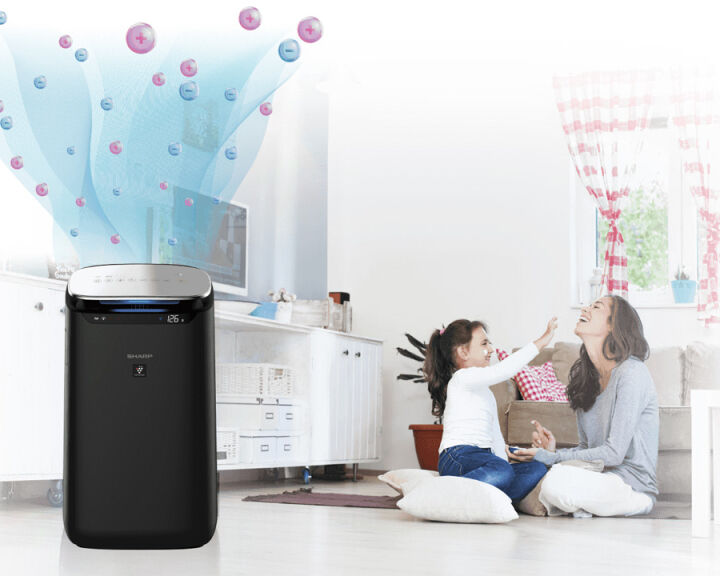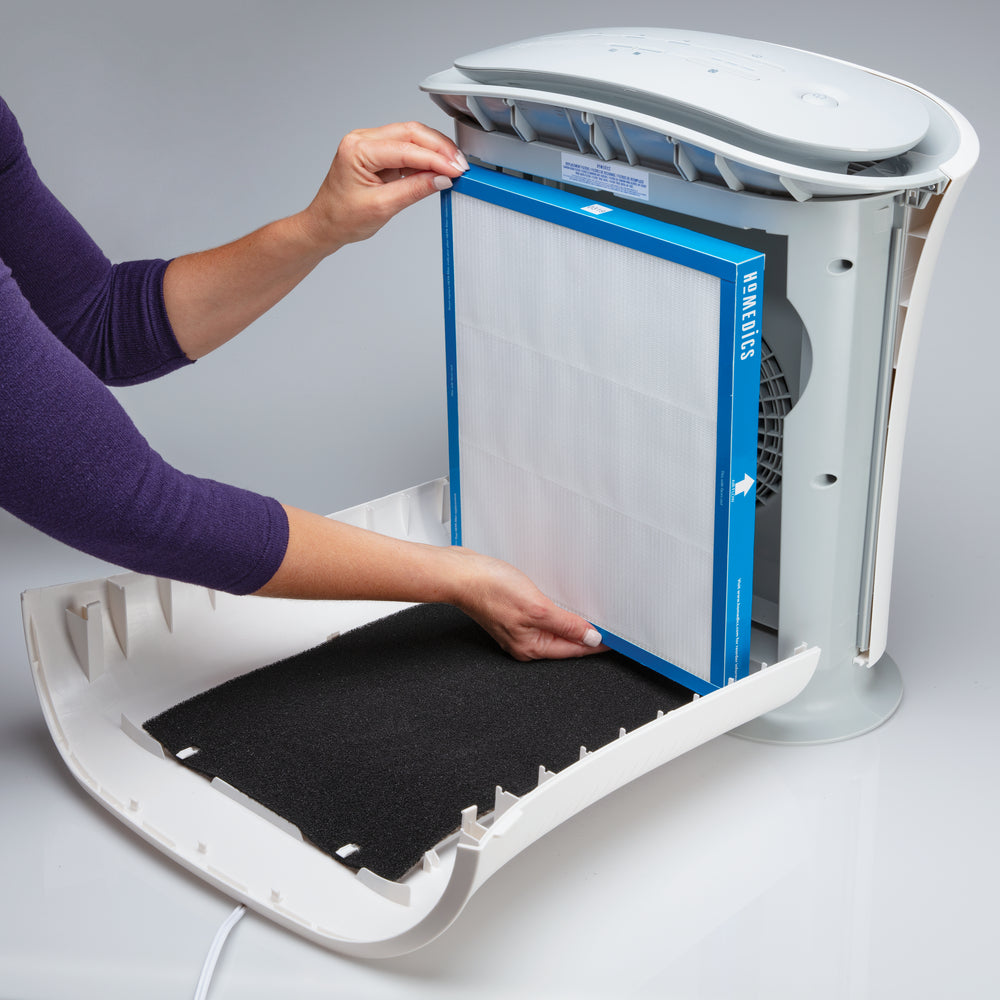Featured
Table of Contents
- – Recognizing Allergic Reactions and Triggers
- – Can Air Purifiers Aid With Allergies?
- – The Science Behind Air Purifiers and Allergies
- – Are Air Purifiers Right for You? Variables to...
- – Taking advantage of Air Purifiers for Allergies
- – Beyond Air Purifiers: A Multi-Pronged Method t...
- – Living a Breath Easier Life with Allergies

Air purifiers are typically promoted as a remedy, appealing cleaner air and relief from allergic reaction signs. Are air cleansers really worth the investment for allergic reaction patients?
Recognizing Allergic Reactions and Triggers
To recognize the role of air cleansers, let's first delve right into allergies and their triggers:
- The Sensitive Action: Allergies take place when your body immune system panics to a harmless compound, like plant pollen or dust termites. This response activates the launch of histamines, triggering allergic reaction symptoms like sneezing, coughing, scratchy eyes, and a runny nose.
- Usual Irritants: Indoor allergens include dirt termites, pet dog dander, mold spores, pollen that wanders inside, and even cockroach irritants. These air-borne bits can aggravate your respiratory tracts and activate allergic reaction symptoms.
Can Air Purifiers Aid With Allergies?
Air purifiers work by reeling in air, filtering system out pollutants, and launching cleaner air back into the space. Below's just how they can potentially profit allergy victims:
- Trapping Irritants: HEPA (High-Efficiency Particulate Air) filters, a common kind utilized in air purifiers, are highly effective at capturing air-borne allergens like dust termites, pet dander, and pollen. By eliminating these triggers from the air you take a breath, air cleansers can help in reducing allergic reaction signs.
- Improved Air Quality: Air cleansers can likewise remove various other toxic irritants from the air, such as smoke, dirt, and volatile natural substances (VOCs) This general renovation in air top quality can be valuable for allergic reaction victims who are delicate to these extra triggers.
The Science Behind Air Purifiers and Allergies
Studies have shown that air purifiers can be helpful in decreasing allergic reaction signs. Here's a check out some vital study findings:
- A 2019 review published in the journal "Existing Allergic reaction and Asthma Reports" ended that air purifiers with HEPA filters can be effective in reducing allergic reaction symptoms and improving lifestyle for people with hay fever (hay high temperature)
- A 2018 research study released in the journal "Record of Allergic Reaction, Asthma & Immunology" found that using an air purifier with a HEPA filter in the bed room significantly lowered dust mite allergen levels and improved rest quality in people with bronchial asthma.
Nevertheless, it is necessary to keep in mind that study likewise suggests some restrictions:
- Air Purifier Insurance Coverage: Air purifiers are most reliable in the space where they are put. Their influence on allergens in various other parts of the home may be very little.
- Extent of Allergies: While air cleansers can help, they might not be a full remedy for serious allergies. Medications and other allergic reaction administration strategies may still be essential.
Are Air Purifiers Right for You? Variables to Think About
Below are some key variables to think about when making a decision if an air purifier deserves it for your allergies:
- Severity of Allergies: If your allergies are mild and well-controlled with medication, an air purifier may not be essential. Nevertheless, for those with modest to severe allergies, an air purifier can be a beneficial tool in managing signs.
- Types of Irritants: Consider the major triggers for your allergic reactions. Air cleansers are most effective for air-borne irritants like allergen, animal dander, and pollen. They might not be as helpful for irritants like mold that expand on surface areas.
- Lifestyle and Environment: If you have animals, live in an area with high plant pollen counts, or have worries regarding interior air quality, an air purifier can be valuable.

Taking advantage of Air Purifiers for Allergies
If you make a decision to spend in an air purifier for allergies, here are some ideas for maximizing its effectiveness:
- Choose a HEPA Filter: Try to find an air purifier with a HEPA filter accredited to catch fragments as little as 0.3 microns.
- Right Dimension for the Room: Make certain the air purifier has a Clean Air Distribution Price (CADR) that appropriates for the size of the area you intend to use it in.
- Positioning Issues: Place the air purifier in the room where you spend the most time, such as your room.
- Routine Filter Upkeep: Change HEPA filters according to the maker's guidelines to maintain optimum performance.
- Incorporate with Other Approaches: Air purifiers are not a one-size-fits-all option. Incorporate them with various other allergy administration approaches like medication, routine cleansing, and allergen-proof bed linens.
Beyond Air Purifiers: A Multi-Pronged Method to Allergic Reaction Management

While air purifiers can be a valuable device in your allergic reaction toolbox, they are not a miracle drug (If you're looking to buy an Air Purifier then Air Cleaners Australia is the best destination.). A comprehensive method that incorporates air filtration with various other strategies is essential to achieving lasting allergy relief. Right here are some added techniques to consider:
- Medication: Antihistamines, decongestants, and nasal corticosteroids, recommended by your physician, can properly handle allergy symptoms.
- Allergic Reaction Testing and Immunotherapy: Determining your certain allergens with allergic reaction screening can lead the way for immunotherapy, a therapy that assists desensitize your body immune system to allergens over time.
- Air Top Quality Administration: Routine cleaning with a HEPA-filtered vacuum cleaner and allergen-specific cleaning products can substantially minimize allergen, family pet dander, and various other irritants in your home.
- Managing Moisture: Mold and mildew grows in moist settings. Utilizing a dehumidifier can assist manage moisture levels and prevent mold development, an usual interior allergen.
- Way of life Adjustments: If you have hatreds pollen, remaining inside throughout peak plant pollen periods and bathing after hanging around outdoors can help decrease exposure.
- Bedding and Surface Areas: Enclosing cushions and bed mattress in allergen-proof covers can dramatically decrease dirt mite direct exposure. Frequently cleaning bed linen in warm water helps eliminate allergens.
Living a Breath Easier Life with Allergies
Remember, handling allergies is a constant process. By understanding your triggers, carrying out a multi-pronged strategy, and possibly integrating an air purifier into your method, you can considerably minimize allergic reaction signs and symptoms and take a breath simpler.
Additional Factors To Consider:
- Consulting a Medical professional: If your allergies are extreme or not well-controlled with medicine and way of life modifications, consult a specialist for individualized recommendations.
- Air High Quality Monitoring: Take into consideration making use of an air top quality screen to track irritant levels in your house and adjust your management strategies accordingly.
- Long-Term Financial investment: A top quality air purifier can be a long-lasting financial investment in your health and wellness and health.
By taking a positive strategy and embracing a mix of these techniques, you can produce a much healthier and allergy-friendly setting, allowing you to appreciate a breath simpler life.
Table of Contents
- – Recognizing Allergic Reactions and Triggers
- – Can Air Purifiers Aid With Allergies?
- – The Science Behind Air Purifiers and Allergies
- – Are Air Purifiers Right for You? Variables to...
- – Taking advantage of Air Purifiers for Allergies
- – Beyond Air Purifiers: A Multi-Pronged Method t...
- – Living a Breath Easier Life with Allergies
Latest Posts
6 Easy Facts About Can Your Yeti Rambler Survive A Trip Through The Dishwasher? Explained
See This Report about Is Dishwashing Yeti Ramblers Recommended?
Not known Facts About Is The Dishwasher Safe For Yeti Rambler Drinkware?
More
Latest Posts
6 Easy Facts About Can Your Yeti Rambler Survive A Trip Through The Dishwasher? Explained
See This Report about Is Dishwashing Yeti Ramblers Recommended?
Not known Facts About Is The Dishwasher Safe For Yeti Rambler Drinkware?